Essential oils are highly concentrated plant extracts that have been used for centuries in traditional healing practices. Their potential benefits for scalp health are gaining attention, with some suggesting they may help with issues like dryness, itchiness, and even promote hair growth. However, it’s important to understand how to use essential oils safely and effectively for the best results.
Can Essential Oils Really Benefit Your Scalp?
While more extensive scientific research is needed, there’s promising evidence that certain essential oils possess properties that could be helpful for scalp health:
- Antimicrobial: Oils like tea tree, rosemary, and peppermint may help combat scalp conditions associated with bacteria or fungus.
- Anti-inflammatory: Lavender, chamomile, and others may soothe scalp irritation and reduce inflammation.
- Balancing: Some oils like clary sage or cedarwood may help regulate sebum (oil) production, addressing both dry and oily scalp issues.
- Circulation Boost: Massaging diluted essential oils into the scalp might stimulate blood flow, potentially aiding hair growth.
Essential Oils to Consider for Scalp Care
Let’s take a closer look at some of the most popular essential oils used for scalp health and their potential advantages:
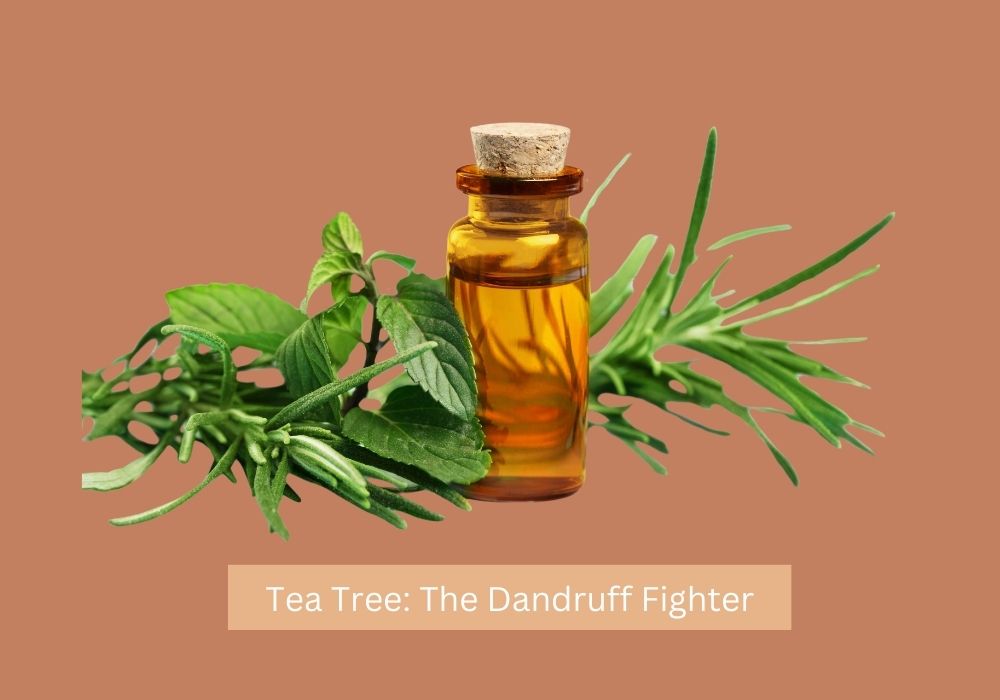
Tea Tree: The Dandruff Fighter
Tea tree oil is a star player thanks to its antiseptic and antifungal properties. If you have dandruff or scalp itchiness caused by fungal overgrowth, diluted tea tree oil might offer relief. It’s also useful if your scalp feels oily or has buildup from styling products.
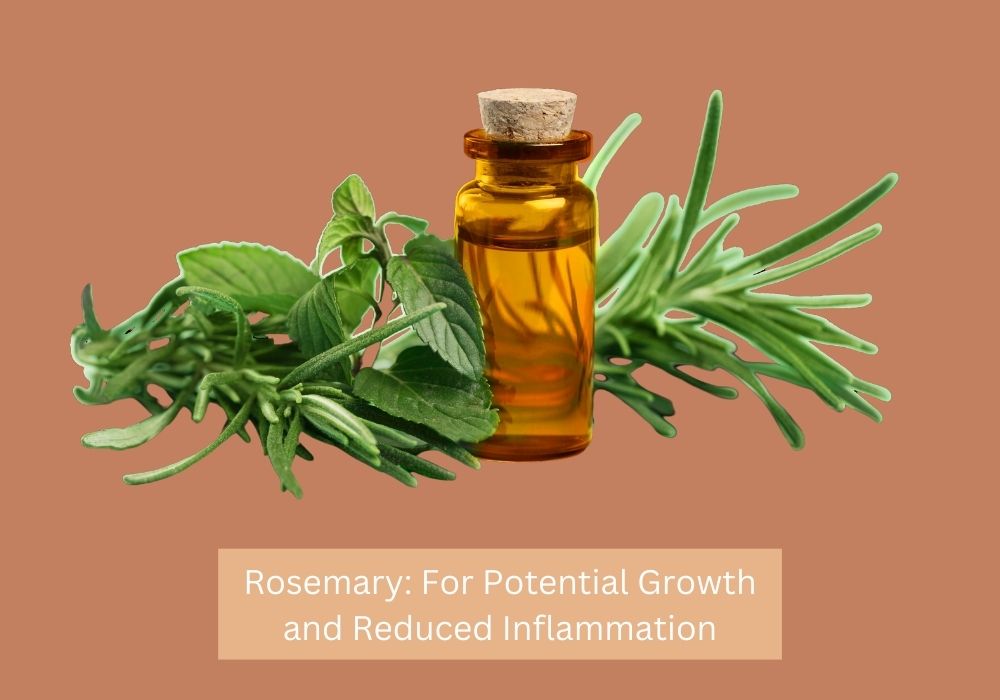
Rosemary: For Potential Growth and Reduced Inflammation
Rosemary essential oil is associated with promoting hair growth, likely due to its ability to improve blood circulation to the scalp. It also acts as an anti-inflammatory and antioxidant, making it potentially beneficial for itchy, irritated scalps.
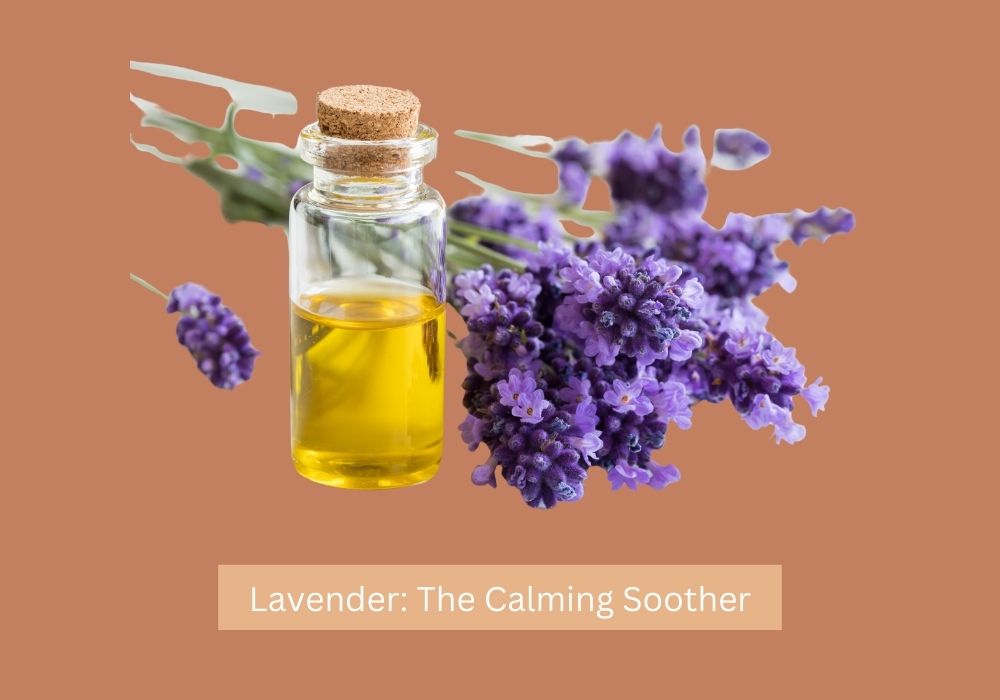
Lavender: The Calming Soother
Lavender essential oil is known for its relaxing and calming properties. Applied to the scalp, it may help soothe sensitivity, dryness, and potential inflammation. The relaxing scent of lavender can also be beneficial if stress plays a role in your scalp troubles.
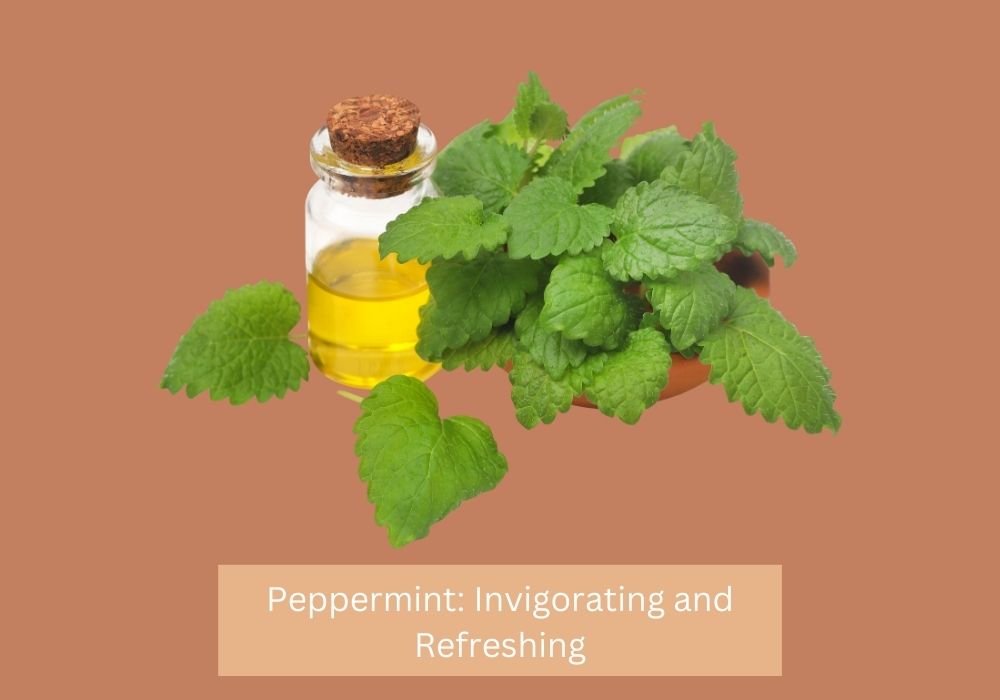
Peppermint: Invigorating and Refreshing
Peppermint oil creates a cool, tingling sensation on the scalp, which can temporarily mask sensations of itchiness. Its ability to stimulate blood flow might help deliver nutrients to hair follicles. Those with oily scalps might appreciate its refreshing feel.
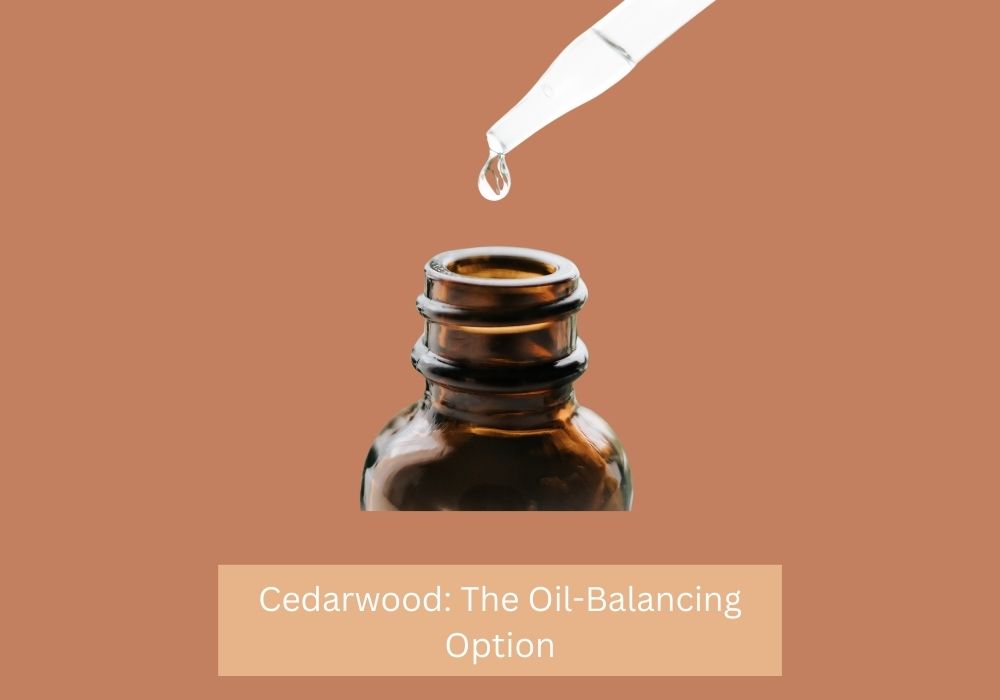
Cedarwood: The Oil-Balancing Option
Cedarwood essential oil may help regulate sebum production, making it helpful for both oily and dry scalp issues. Some also suggest it has potential in combating hair loss, though more research is needed in that area.
Important Note: Even with diluted essential oils, start with a single oil at first to ensure you don’t have any sensitivity to it.
How to Use Essential Oils Safely on Your Scalp
Safety is paramount! Essential oils shouldn’t replace advice from a dermatologist or treatment for diagnosed conditions. Here’s the responsible way to use them:
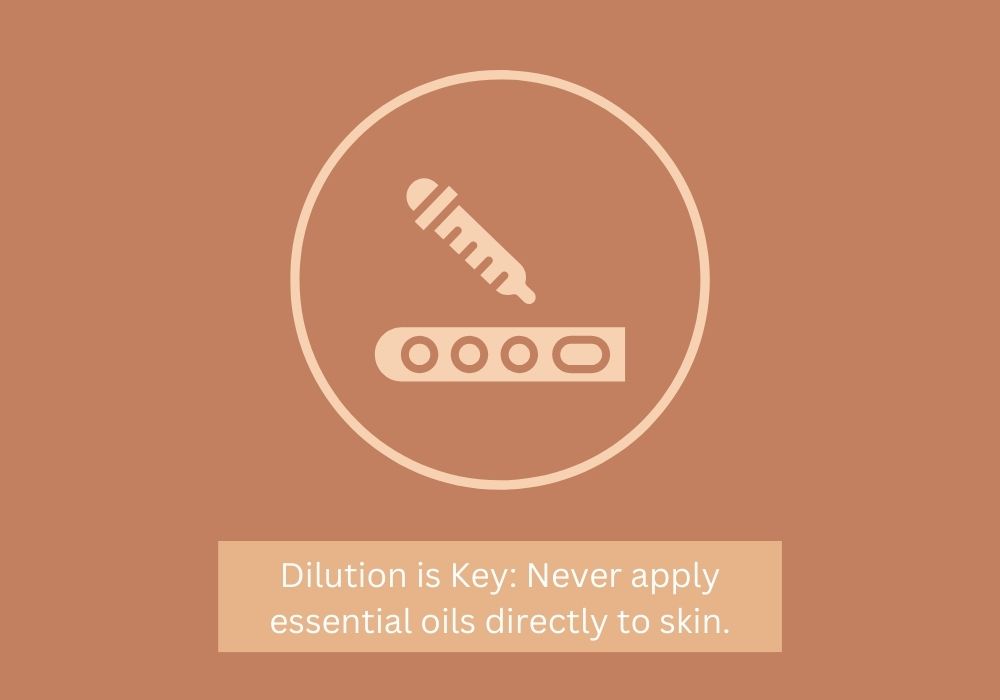
Dilution is Key: Never apply essential oils directly to skin.
Essential oils are extremely concentrated. Applying them undiluted can cause severe skin irritation, burns, or allergic reactions. Always dilute them in a carrier oil, a gentle plant-based oil like jojoba, coconut, or sweet almond oil. A good starting point is 1-2 drops of essential oil per teaspoon of carrier oil. You can adjust this slightly as needed and within safe guidelines.
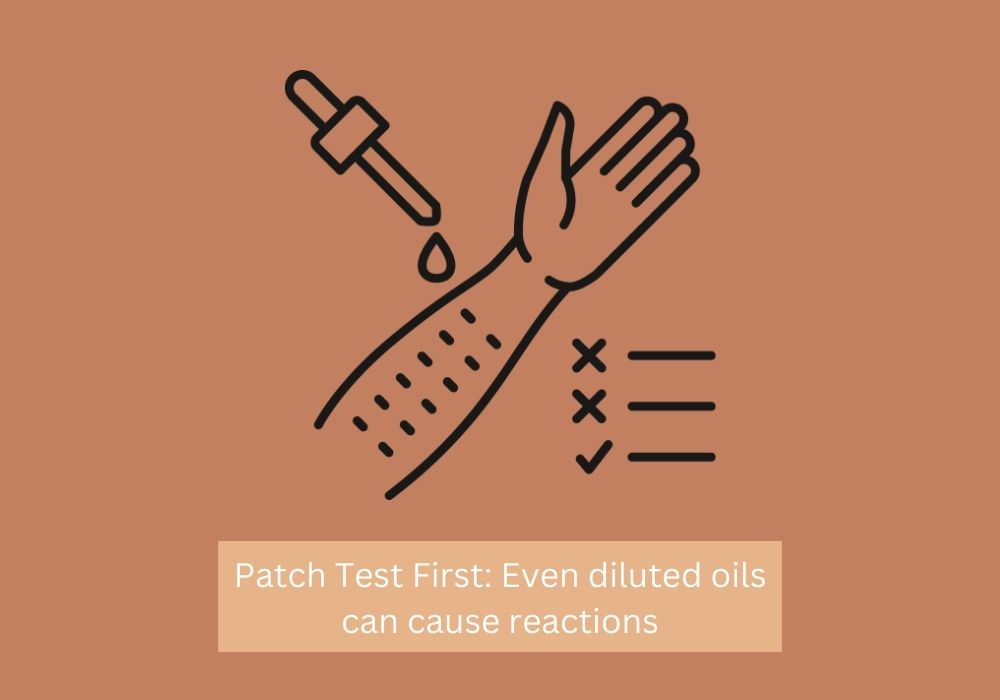
Patch Test First: Even diluted oils can cause reactions.
Before applying any essential oil blend to your scalp, conduct a patch test. Apply a small amount of the diluted mixture to your inner arm and wait 24 hours. If you notice any itching, redness, swelling, or other signs of irritation, do not use the oil on your scalp.
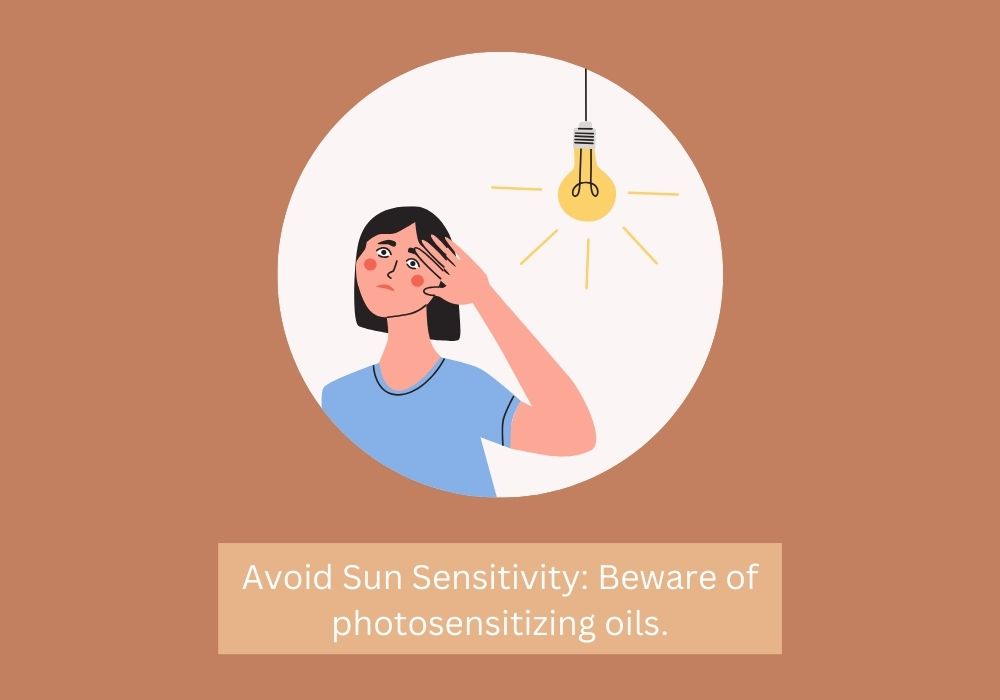
Avoid Sun Sensitivity: Beware of photosensitizing oils.
Some essential oils, particularly citrus oils like bergamot or lemon, can make your skin more sensitive to sunlight. This increases the risk of sunburn and photodamage. If you’ve used a citrus-based oil on your scalp, wash it out thoroughly before prolonged sun exposure.
Quality Matters: Choose reputable brands offering pure, unadulterated essential oils.
Not all essential oils are created equal! Opt for reputable brands that clearly mention the botanical name of the plant the oil is derived from, offer third-party testing for purity, and avoid using synthetic fillers or adulterants. Low-quality oils can contain impurities that irritate your skin.
Important Note: If you have any underlying health conditions or are taking medications, consult your doctor before using essential oils – even externally.
Ways to Utilize Essential Oils for Scalp Health
- Scalp Massage: Combine a few drops of chosen essential oil(s) with a carrier oil and gently massage into your scalp for several minutes.
- Shampoo Boost: Add a few drops to your regular shampoo (make sure it’s a mild one).
- Hair Mask: Create a nourishing hair mask with carrier oils, yogurt, or honey, and add essential oils for extra scalp benefits.
A Word of Caution
Essential oils are powerful substances. Misuse can lead to scalp irritation, allergic reactions, or even more serious side effects. Here are some additional things to keep in mind:
- “Natural” Doesn’t Always Mean Safe: Essential oils can interact with medications or worsen existing skin conditions.
- Individual Reactions Vary: What works wonders for someone else might not be right for you.
- They’re Not a Cure-All: Essential oils might be a useful part of managing scalp health, but they won’t replace proven treatments for conditions like psoriasis or severe hair loss.
Empowered and Informed
Essential oils can be a delightful addition to your beauty rituals and potentially offer benefits to your scalp. With careful research, safe practices, and realistic expectations, you can explore their potential within your overall scalp care routine.
Disclaimer: The information provided here is for educational purposes and should not be taken as medical advice. Always consult with a dermatologist or qualified healthcare provider before starting any new treatments, including the use of essential oils.
